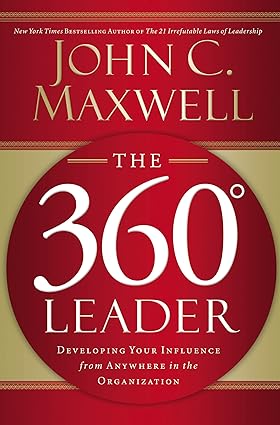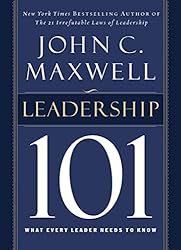went down stairs to the office, with the package under his arm.
“Well?” said Mr. Goodnow inquiringly.
“This is the package, sir.”
“And it was found in your room?”
“Yes, sir, I found it on my bed.”
“Can’t you account for it being there?” asked the
merchant searchingly.
“No, sir.”
“You must admit that its presence in your room looks bad for you.”
“I admit it sir; but I had nothing to do with it being there.”
“Have you any theory to account for it?”
“Only this, that some one must have carried it to my room and
placed it where it was found.”
“Did you question your landlady as to whether she had admitted
any one during the morning?”
“Yes, sir. She had not.”
“This is very unfavorable to you.”
“In what way, sir?”
“It makes it probable that you carried in the parcel yourself.”
“That I deny,” said Rodney boldly.
“I expected you to deny it” said the merchant coldly. “If this
cloak were the only one that had been taken I would drop
the matter. But this is by no means the case. Mr. Redwood,
can you give any idea of the extent to which we have been robbed?”
“So far as I can estimate we have lost a dozen cloaks and about
half a dozen dress patterns.”
“This is a serious loss, Ropes,” said Mr. Goodnow. “I should
think it would foot up several hundred dollars. If you can
throw any light upon the thefts, or give me information by which
I can get back the goods even at considerable expense, I will be
as considerate with you as I can.”
“Mr. Goodnow,” returned Rodney hotly, “I know no more about the
matter than you do. I hope you will investigate, and if you can
prove that I took any of the missing articles I want no consideration.
I shall expect you to have me arrested, and, if convicted, punished.”
“These are brave words, Ropes,” said Mr. Goodnow coldly, “but
they are only words. The parcel found in your room affords
strong ground for suspicion that you are responsible for at
least a part of the thefts. Under the circumstances there is
only one thing for me to do, and that is to discharge you.”
“Very well, sir.”
“You may go to the cashier and he will pay you to the end of the
week, but your connection with the store will end at once.”
“I don’t care to be paid to the end of the week, sir. If you
will give me an order for payment up to tonight, that will
be sufficient.”
“It shall be as you say.”
Mr. Goodnow wrote a few words on a slip of paper and handed it
to Rodney.
“I will leave my address, sir, and if I change it I will notify you.
If you should hear anything as to the real robber I will
ask you as a favor to communicate with me.”
“Mr. Redwood, you have heard the request of Ropes, I will look
to you to comply with it.”
“Very well, sir.”
The merchant turned back to his letters, and Rodney left the
office, with what feelings of sorrow and humiliation may be imagined.
“I am sorry for this occurrence, Ropes,” said Mr. Redwood, with
a touch of sympathy in his voice.
“Do you believe me guilty, Mr. Redwood?”
“I cannot do otherwise. I hope you are innocent, and, if so,
that the really guilty party will be discovered sooner or later.”
“Thank you, sir.”
When they entered the room in which Rodney had been employed
Jasper came up, his face alive with curiosity.
“Well,” he said, “how did you come out?”
“I am discharged,” said Rodney bitterly.
“Well, you couldn’t complain of that. Things looked pretty dark
for you.”
“If I had committed the theft, I would not complain. Indeed, I
would submit to punishment without a murmur. But it is hard to
suffer while innocent.”
“Uncle James,” said Jasper, “if Ropes is going will you ask Mr.
Goodnow to put me in his place?”
Even Mr. Redwood was disgusted by this untimely request.
“It would be more becoming,” he said sharply, “if you would
wait till Ropes was fairly out of the store before applying
for his position.”
“I want to be in time. I don’t want any one to get ahead of me.”
James Redwood did not deign a reply.
“I am sorry you leave us under such circumstances, Ropes,”
he said. “The time may come when you will be able to establish
your innocence, and in that case Mr. Goodnow will probably take
you back again.”
Rodney did not answer, but with his order went to the cashier’s
desk and received the four dollars due him. Then, with a heavy
heart, he left the store where it had been such a satisfaction
to him to work.
On Broadway he met his room mate, Mike Flynn, in the uniform of
a telegraph boy.
“Where are you goin’, Rodney?” asked Mike. “You ain’t let off
so early, are you?”
“I am let off for good and all, Mike.”
“What’s that?”
“I am discharged.”
“What for?” asked Mike in amazement.
“I will tell you when you get home tonight.”
Rodney went back to his room, and lay down sad and despondent.
Some hours later Mike came in, and was told the story. The warm
hearted telegraph boy was very angry.
“That boss of yours must be a stupid donkey,” he said.
“I don’t know. The parcel was found in my room.”
“Anybody’d know to look at you that you wouldn’t steal.”
“Some thieves look very innocent. The only way to clear me is
to find out who left the bundle at the house.”
“Doesn’t Mrs. McCarty know anything about it?”
“No; I asked her.”
“Some one might have got into the house without her knowing
anything about it. The lock is a very common one. There are
plenty of keys that will open it.”
“If we could find some one that saw a person with a bundle go up
the steps, that would give us a clew.”
“That’s so. We’ll ask.”
But for several days no one could be found who had seen any
such person.
Meanwhile Rodney was at a loss what to do. He was cut off from
applying for another place, for no one would engage him if he
were refused a recommendation from his late employer. Yet he
must obtain some employment for he could not live on nothing.
“Do you think, Mike,” he asked doubtfully, “that I could make
anything selling papers?”
“Such business isn’t for you,” answered the telegraph boy.
“But it is one of the few things open to me. I can become a
newsboy without recommendations. Even your business would be
closed to me if it were known that I was suspected of theft.”
“Thats so,” said Mike, scratching his head in perplexity.
“Then would you recommend my becoming a newsboy?”
“I don’t know. You couldn’t make more’n fifty or sixty cent a day.”
“That will be better than nothing.”
“And I can pay the rent, or most of it, as I’ll be doin’ better
than you.”
“We will wait and see how much I make.”
So Rodney swallowed his pride, and procuring a supply of
afternoon papers set about selling them. He knew that it was an
honest business, and there was no disgrace in following it.
But one day he was subjected to keen mortification.
Jasper Redwood and a friend- it was Philip Carton, his
confederate- were walking along Broadway, and their glances
fell on Rodney.
“I say, Jasper,” said the elder of the two, “isn’t that the boy
who was in the same store with you?”
Jasper looked, and his eyes lighted up with malicious satisfaction.
“Oho!” he said. “Well, this is rich!”
“Give me a paper, boy,” he said, pretending not to recognize
Rodney at first. “Why, it’s Ropes.”
“Yes,” answered Rodney, his cheek flushing. “You see what I am
reduced to. What paper will you buy?”
“The _Mail and Express_.”
“Here it is.”
“Can’t you get another place?” asked Jasper curiously.
“I might if I could get a recommendation, but probably Mr.
Goodnow wouldn’t give me one.”
“No, I guess not.”
“So I must take what I can get.”
“Do you make much selling papers?”
“Very little.”
“You can’t make as much as you did in the store?”
“Not much more than half as much.”
“Do you live in the same place?”
“Yes, for the present.”
“Oh, by the way, Ropes, I’ve got your old place,” said Jasper
in exultation.
“I thought you would get it,” answered Rodney, not without a pang.
“Come into the store some day, Ropes. It will seem like old times.”
“I shall not enter the store till I am able to clear myself of
the charge made against me.”
“Then probably you will stay away a long time.”
“I am afraid so.”
“Well, ta, ta! Come along, Philip.”
As Rodney followed with his eye the figure of his complacent
successor he felt that his fate was indeed a hard one.



















